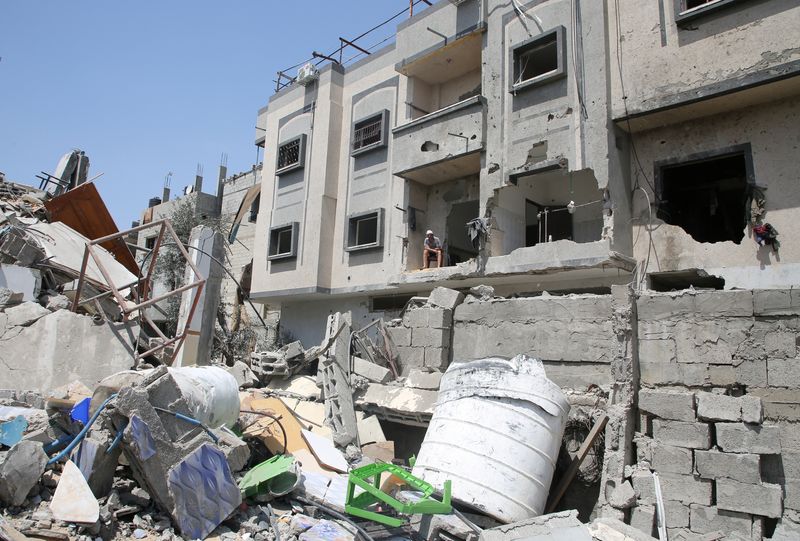By Patricia Zengerle
WASHINGTON (Reuters) - U.S. President Joe Biden's administration faced renewed pressure on Wednesday from his fellow Democrats to influence Israel not to launch a full-scale invasion of Rafah, the city where almost half of the Gaza Strip's 2.3 million people have taken refuge.
Fifty-seven of the 212 Democrats in the House of Representatives signed a letter calling on the administration to take every possible measure to dissuade Israeli Prime Minister Benjamin Netanyahu's government from an all-out assault on the city near the Egyptian border.
"We urge you to invoke existing law and policy to immediately withhold certain offensive military aid to the Israeli government, including aid sourced from legislation already signed into law, in order to preempt a full-scale assault on Rafah," said the letter, dated Wednesday.
The White House did not immediately respond to a request for comment on the letter, which was led by Representatives Pramila Jayapal and Madeleine Dean.
Biden's support for Israel in its war against Hamas has emerged as a significant political liability for the president, particularly among young Democrats. It fueled a wave of "uncommitted" protest votes in Democratic primaries and has also driven the wave of pro-Palestinian protests at U.S. universities.
That is raising worries for Democrats as Biden is locked in a tight re-election rematch against his Republican predecessor Donald Trump.
Secretary of State Antony Blinken said on Wednesday he had still not seen a plan for Israel's promised offensive on Rafah that would protect civilians, repeating that Washington could not support such an assault.

Blinken and Netanyahu met in Jerusalem for 2-1/2 hours on Wednesday, after which Israel repeated that the Rafah operation would go ahead despite the U.S. position and a U.N. warning that it would lead to "tragedy."
The United States is Israel's main diplomatic supporter and weapons supplier. Blinken's visit to Israel came about a month after Biden issued a stark warning that Washington's policy could shift if Israel fails to take steps to address civilian harm, humanitarian suffering and the safety of aid workers.